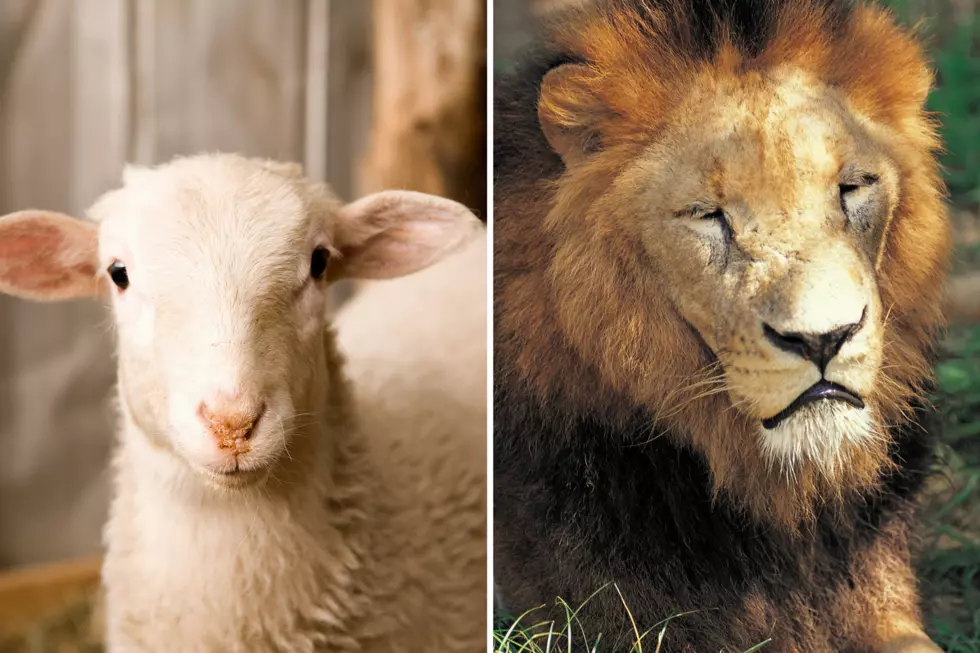
Where Did The Phrase ‘In Like A Lamb, Out Like A Lion’ Come From?
Here we are at the end of another month and March all set to come in. Will it come in like a lamb or a lion? So where did the phrase 'In like a lamb, out like a lion' come from?
While many sayings are base on observation and are accurate, others are the rhymes and beliefs of those who came before us.
Those folks actually believed that bad spirits could change the weather adversely, so they were cautious as to what they did or didn't do in certain situations. Those beliefs also included ideas that there could be a balance in weather and in life. So if the weather came in bad, (like a lion) it could go out good and calm. (like a lamb)
Since March is such a changeable month in which we can see warm, spring-like days, or late season blizzards, you can understand how the saying might hold true in some instances.
According to The Paris Review: "One of the earliest citations is in one Thomas Fuller’s 1732 compendium, Gnomologia: Adagies and Proverbs; Wise Sentences and Witty Sayings, Ancient and Modern, Foreign and British. The authors give the wording as 'Comes in like a Lion, goes out like a Lamb.'"
The Guardian points out that it might also have a connection to the stars: :One idea which has recently gained currency is that the saying refers to the stars. At the start of March, the constellation Leo (the Lion) is on the eastern horizon at sunset. By the end of the month, Aries (the Ram) is on the western horizon."
According to the Farmer's Almanac, some other March related sayings include the following:
- A dry March and a wet May? Fill barns and bays with corn and hay.
- As it rains in March so it rains in June.
- March winds and April showers? Bring forth May flowers.
So what will the weather be like for March? Check out the Almanac forecasts.
Jay Williams contributed to this story.
See Also:
What Are the Signature Drinks From Every State?
More From KIKN-FM / Kickin' Country 99.1/100.5









